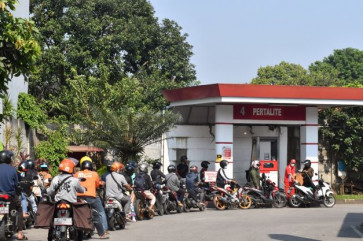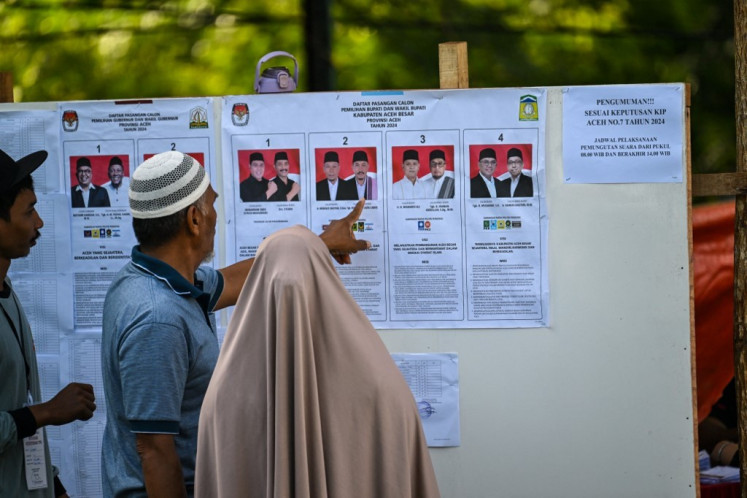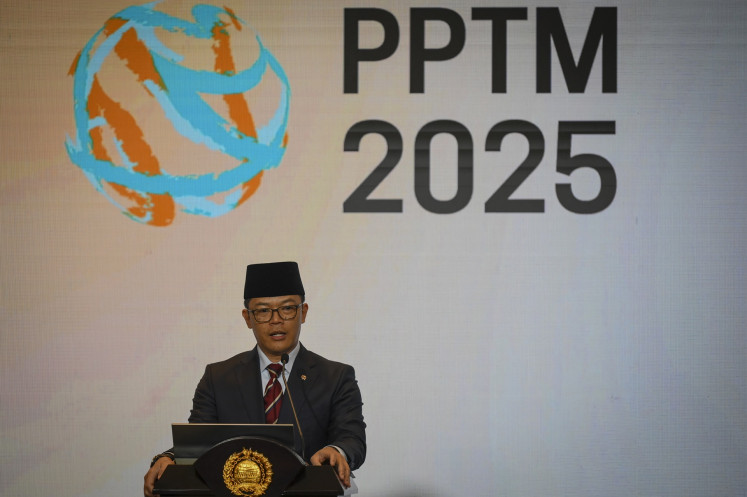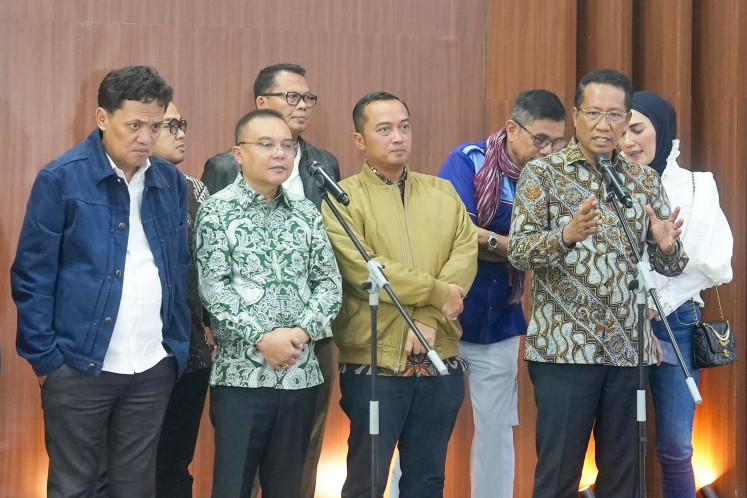Popular Reads
Top Results
Can't find what you're looking for?
View all search resultsPopular Reads
Top Results
Can't find what you're looking for?
View all search resultsThe sick and elderly can still fast under conditions: Experts
As the Ramadhan fasting month approaches, the question of whether people with chronic illnesses or the elderly should fast arises
Change text size
Gift Premium Articles
to Anyone
A
s the Ramadhan fasting month approaches, the question of whether people with chronic illnesses or the elderly should fast arises.
According to a symposium on fasting and health at the Prodia Laboratory Headquarters in Central Jakarta on Wednesday, refraining from eating and drinking 14 hours daily during the fasting month should be safe for the elderly, diabetics or people with gastric ulcers if they do so under medical supervision.
Tri Juli Edi Tarigan, an endocrinologist; Siti Setiati, a geriatrist; and Ari Fahrial Syam, an expert in gastroenterology, explained how diabetics, geriatrics and people with gastric ulcers should look after themselves during Ramadhan.
First, internist Imam Subekti from Cipto Mangunkusumo Hospital said only certain types of diabetics could fast: Those controlling blood sugar through diet and exercise, those taking single or double doses of drugs per day, and those who accept one or two insulin injections per day.
“Diabetics who take more than two insulin injections per day cannot fast,” Imam said.
For those diabetics who can fast, endocrinologist Tri Julian Edi Tarigan said they must check their blood sugar at noon and before the fast breaking, every day. “If blood sugar drops to 60 milligrams per deciliter or less, or it reaches 300 milligrams per deciliter, they cannot fast,” the endocrinologist from the University of Indonesia said.
Geriatrist Siti Setiadi said that geriatrics could fast as long as illnesses they had could be controlled and they did not have acute infections. She explained that geriatrics were old people from 64 to 83 years of age who suffer multiple “Diseases can be hypertension, diabetes and acute respiratory infection disease.”
She said geriatrics were required to drink more than eight glasses of water per day, because as people grew older, body fluids normally dropped from 60 percent to 45-50 percent.
She said that as the amount of an elderly’s body fluids decreased, they did not feel thirsty, which drops their water intake. She added that geriatrics should be aware that they were prone to dehydration. “Drink with your mind, not mouth,” Siti said.
Moderate eating habits during the fast breaking is also essential. She said they should eat snacks first before the daily sunset prayer (sholat magrib) and then main dishes after the prayer.
She cited an example of a one-day menu consisting of 1,700 calories. During a pre-dawn meal, a geriatric patient can eat one-and-a-half cups of rice, stewed meat, tumis tempe, a tamarind-based vegetable soup sayur asem bowl, and one orange.
During fast breaking, they can eat three dates and a small fruit salad bowl before sunset prayer. After the prayer, they can eat the same portion of rice, chicken curry, steamed tofu, a bowl of vegetable soup and one banana. (fem)










